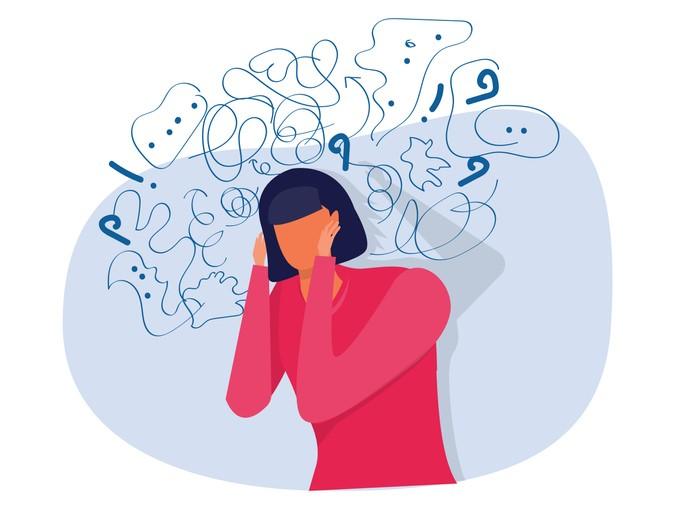
How to cope with ADHD: practical tips for everyday living
Peer reviewed by Dr Krishna Vakharia, MRCGPAuthored by Victoria RawOriginally published 16 Oct 2024
Meets Patient’s editorial guidelines
- DownloadDownload
- Share
- Language
- Discussion
Attention deficit hyperactivity disorder (ADHD) is a neurological condition that affects those who have it in different ways. If you have ADHD it may cause symptoms like restlessness, impulsive behaviour, and difficulty concentrating. It's important to address ADHD early to help you manage your symptoms, improve your wellbeing and strengthen your relationships.
In this article:
Video picks for ADHD
According to the National Institute for Health and Care Excellence (NICE), around 5% of children and 4% of adults in the UK have ADHD. However, this figure is likely underestimated due to the number of people waiting to be diagnosed.
People living with ADHD may struggle with:
Organisation.
Concentration.
Time management.
Stress and anxiety.
Communication.
Dr Tom MacLaren, consultant psychiatrist, Re:CognitionHealth, London explains: "Many people with ADHD experience mood swings, irritability, and difficulties in personal and professional relationships."
He adds that while certain medicines can improve focus and reduce impulsivity, incorporating healthy lifestyle habits can also help improve your overall wellbeing.
"The most important thing is finding what works best for you," he says.
Tips to help with organisation
If you have ADHD, you may struggle with managing tasks and meeting deadlines, which can leave you feeling overwhelmed. Delaying tasks or rushing them are also common challenges.
Streamline your surroundings
Reducing clutter in your home or work environment as a way to improve your organisational skills. This can help your productivity and focus, lower your stress levels, and save time spent searching for items.
"Creating a more organised and structured environment can start with regular decluttering," MacLaren says. "However, if you find that a “maximalist” over "minimalist" environment works better for you, don’t feel pressured to change it drastically."
Keep essentials within reach
Keeping frequently used items in familiar places can help your organisational skills.
MacLaren says this can help you avoid losing track of them.
Group similar items together - such as medicines or stationery - in drawers or cupboards. Consider using labels if this makes them even easier to find. Clear storage containers are also helpful, as they allow you to quickly identify their contents, even when they're put away.
Colour-coding documents and storing them neatly in files can help you locate the right information quickly.
Plan ahead
There are many innovative ways to help you keep track of your schedule. MacLaren recommends using daily planners, calendars, and digital reminders - especially for important appointments - as a strategy for staying organised.
You can also make a daily to-do list to record unfinished tasks as well as completed ones.
Tips to help with concentration
Back to contentsHaving trouble focusing and becoming easily distracted is a key symptom of ADHD. However, certain techniques can help improve your concentration.
Break tasks into manageable pieces
To enhance focus, concentration and impulsivity, it is helpful to set clear goals by prioritising one task at a time.
For example, if you are gardening, tackle one section of your garden per day throughout the week, rather than attempting to do the entire space at once.
MacLaren says that using timers - such as the Pomodoro technique - can also improve your attention span for shorter periods.
The Pomodoro technique
This is a common practice that promotes focused work.
Each work session - called a 'pomodoro' - consists of a focused 25-minute timespan.
For each pomodoro, set a timer and focus completely - without distractions - on the chosen task for that time.
When the timer goes off, stop working - even if you feel the task is unfinished.
Take a break of 3-5 minutes between each pomodoro before moving on to the next task.
After completing four pomodoros, take a longer break of 15-30 minutes to rest and recharge.
Minimise distractions
Many people with ADHD find they're able to concentrate better with fewer distractions.
"Reducing distractions in your environment is key," says MacLaren. "Ask your employer about ways to work in a quieter space, or consider working remotely in a location where you feel more productive."
Continue reading below
Tips for managing your mental and physical health
Back to contentsDifficulty managing responsibilities can contribute to increased stress and anxiety in people with ADHD. Struggling to stay focused during conversations or express thoughts clearly can test relationships and affect social interactions.
Mindfulness and relaxation
One way to help manage the effects that ADHD might have on your mental health is to embrace mindfulness and relaxation techniques.
MacLaren suggests practices such as deep breathing and yoga to overcome emotional challenges. They may also help reduce impulsivity and improve focus.
"These are often available at local gyms or health clubs," he says. "Numerous online resources and mobile apps offer guided meditation and mindfulness sessions."
Work on relationships and communication
If you have ADHD you may frequently encounter challenges in both personal and professional relationships. Resources such as apps, websites and talking therapies - supervised by a mental health professional - can help you improve communication issues and navigate emotional obstacles.
MacLaren advises that clear and specific communication is essential to avoid misunderstandings - especially when providing instructions at work. Practising empathy and patience is important for building strong relationships, whether it’s listening attentively to your partner’s stories or asking about their day before sharing your own.
"One effective approach is active listening, where you focus fully on the speaker and respond thoughtfully," says MacLaren. "Letting the other person speak for 10-20 seconds before contributing can help them feel heard and validated."
Stay active
Exercise is another proven method to help reduce stress and improve mood.
MacLaren says: "Exercise can be a great way to relieve stress, reflect on disagreements, and see situations from a new perspective."
He adds that regular exercise can also boost overall wellbeing and help establish a routine - something that is particularly helpful for managing ADHD symptoms.
Eat a nutritious diet
Certain dietary changes or supplements can help with ADHD symptoms.
MacLaren says: "Omega-3 fatty acids - found in fish oil - have been shown to improve focus in people with ADHD. It's recommended you include two to three portions of oily fish per week for a healthy source of these fats.
"Zinc and magnesium may help with hyperactivity and impulsivity, though a simple multivitamin is often enough. It’s important to maintain a balanced diet and limit ultra-processed foods, refined sugars, and unhealthy fats, while still allowing for the occasional indulgence."
Cognitive behavioural therapy (CBT)
Cognitive behavioural therapy (CBT) can be effective not only for ADHD but for co-occurring conditions such as anxiety and depression.
MacLaren explains that several weeks of therapy may help you develop skills to manage your symptoms.
"Group therapy can also be a way to see how others with ADHD have benefited from talking therapy," he adds. "There are many types of talking therapies available - talk to your doctor about which option may work best for you."
Consider contacting or joining a support group for people with ADHD. The charity AADD-UK offers a directory of support groups available throughout the UK. This can connect you with others who understand your experiences and can offer valuable support.
Patient picks for ADHD

Brain and nerves
What are the signs of ADHD in women?
In school, boys are twice as likely to be diagnosed with attention deficit hyperactivity disorder (ADHD) as girls. Experts now believe that this gap isn't because more boys develop ADHD, but because many girls go undiagnosed. As ADHD diagnoses in adult women surge, we explore the differences in symptoms between girls/women and boys/men, as well as the signs grown women can look out for in daily life.
by Amberley Davis

Brain and nerves
How to cope with ADHD: practical tips for everyday living
Attention deficit hyperactivity disorder (ADHD) is a neurological condition that affects those who have it in different ways. If you have ADHD it may cause symptoms like restlessness, impulsive behaviour, and difficulty concentrating. It's important to address ADHD early to help you manage your symptoms, improve your wellbeing and strengthen your relationships.
by Victoria Raw
Continue reading below
Article history
The information on this page is peer reviewed by qualified clinicians.
Next review due: 17 Oct 2027
16 Oct 2024 | Originally published
Authored by:
Victoria RawPeer reviewed by
Dr Krishna Vakharia, MRCGP

Ask, share, connect.
Browse discussions, ask questions, and share experiences across hundreds of health topics.

Feeling unwell?
Assess your symptoms online for free
Sign up to the Patient newsletter
Your weekly dose of clear, trustworthy health advice - written to help you feel informed, confident and in control.
By subscribing you accept our Privacy Policy. You can unsubscribe at any time. We never sell your data.